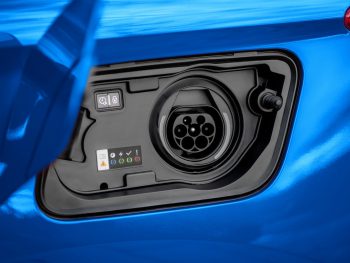EU agrees to count real emissions of plug-in hybrids
The EU is to tighten up climate ratings for plug-in hybrid vehicles (PHEVs), making them realistic of everyday use.
Under the current ‘CAFE’ CO2 emission legislation, carmakers get a bonus for each zero or low-emission vehicle they sell, prompting manufacturers to make more plug-in hybrids as a way of reducing their fleet average emissions target and reducing the risk of financial penalties.
Central to this is the idea among regulators that PHEVs are driven far more in electric mode than is actually the case, leading to unrealistically low emissions ratings.
But green campaign group Transport & Environment (T&E), which has campaigned for years to highlight the true impact of ‘fake’ electric vehicles, said such a system undercounts PHEV CO2 and is an “emissions scandal”.
However, from 2025, the EU will significantly reduce the so-called utility factors, which is the share of electric driving that regulators use for calculating CO2 emissions of PHEVs. And from 2027, the utility factors of plug-in hybrids will fully align with how they are driven in the real world.
Anna Krajinska, emissions engineer at T&E, said the new rules reflect the reality that PHEVs pollute far more than carmakers claim.
She points to latest data showing that, on average, privately owned PHEVs emit three times more CO2 – and therefore use three times more fuel – than recorded officially.
The figures rise sharply for company cars – where plug-in hybrids emit five times more than their official ratings.
While there has been much talk about PHEV drivers, in particular for fleets, not bothering to charge their cars, T&E says the blame lies with the car industry for PHEVs being poorly made with small batteries, weak electric motors, big engines and usually no ability to fast charge.
Anna Krajinska added: “We welcome the end of the myth that plug-in hybrids are low-emission vehicles. Carmakers will no longer be able to sell high volumes of PHEVs for the sole purpose of weakening their climate targets. If they want to avoid EU fines, they will have to sell genuinely green cars that help reduce our oil consumption.”
T&E also called for action on an individual market level to stop PHEV take-up.
“Governments which still incentivise the purchase of these fake electric vehicles need to stop those harmful subsidies now,” added Krajinska.
Latest UK new car registration figures show that PHEVs are fast falling out of favour with drivers, due to the much-lower Benefit-in-Kind taxation for company car drivers and a growing awareness among all drivers of the eco and financial benefits of EVs, as well as a growing focus among carmakers on the latter.
PHEV demand continued to fall in June, down by 36.5% or 4,425 units, while year-to-date PHEV registrations are down 11.9%. In contrast, registrations of battery electric vehicles rose 14.6% last month and a whopping 56.0% YtD.


